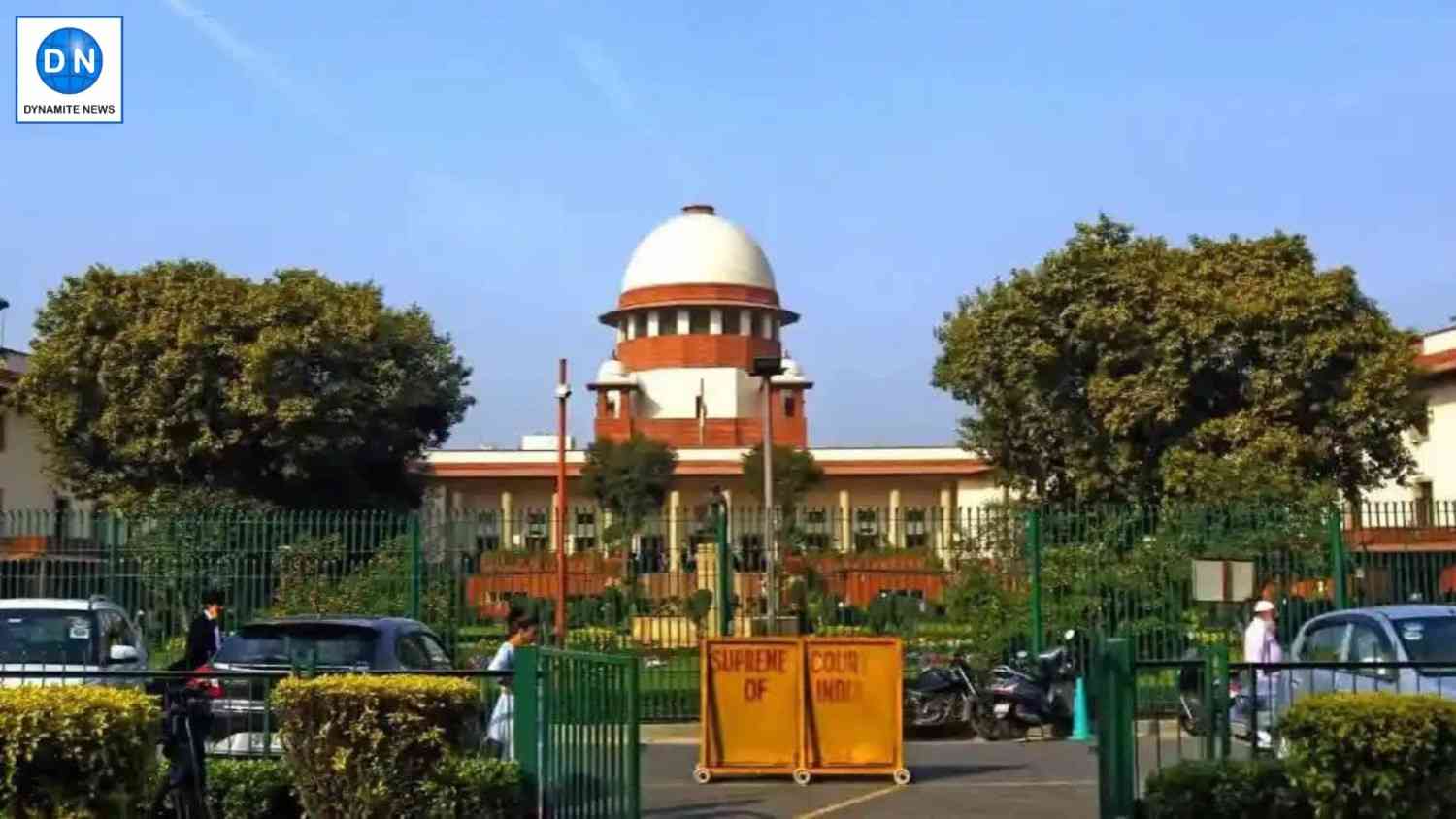Read full verdict of Supreme Court on Manoj Tibrewal Aakash petition in illegal bulldozer action
The Supreme Court pronounced a landmark verdict in the case of illegal demolition of house by bulldozers in Uttar Pradesh. This verdict has raised hopes of justice in many other people. Read full order of the Top Court in this report of Dynamite News:

New Delhi: A three-judge bench of the Supreme Court headed by the Chief Justice of India DY Chandrachud on Wednesday gave a historic verdict in a five-year-old case related to illegal demolition of a house by bulldozers.
This decision of the Supreme Court is a precedent for the country. Besides, this pronouncement has raised the hope of justice in many other people who have been the victim of bulldozer action.
The Supreme Court gave this landmark judgement on Wednesday on a letter petition of senior journalist Manoj Tibrewal Aakash.
Siddharth Bhatnagar, Senior Advocate of Supreme Court; Shubham Kulshrestha; Dr OP Vyas and Aditya Sidhra appeared before the Chief Justice of India in this case on behalf of petitioner Manoj Tibdewal Aakash.
Here is the full verdict of the Supreme Court:
The Supreme Court, in one of the final judgments authored by Chief Justice of India DY Chandrachud, has strongly denounced the trend of "bulldozer justice", whereby State authorities resort to demolition of homes of persons as a punitive action for alleged involvement in crimes.
"Bulldozer justice is simply unacceptable under the rule of law. If it were to be permitted the constitutional recognition of the right to property under Article 300A would be reduced to a dead letter," the judgment stated.
Also Read |
Here is what CJI DY Chandrachud observed against bulldozer action on Manoj Tibrewal Aakash’ petition
The judgment was passed in a case concerning illegal demolition of a house in the State of Uttar Pradesh in 2019. On November 6, the bench comprising CJI DY Chandrachud, Justice JB Pardiwala and Justice Manoj Misra, after finding that the house was demolished without following the due procedure, had directed the State to pay an interim compensation of Rs 25 lakhs to the petitioner. The State was further directed to initiate disciplinary enquiry against the officers who were liable.
In the judgment, which was uploaded today, the Court has added certain strong observations against "bulldozer justice." CJI wrote :
"Justice through bulldozers is unknown to any civilized system of jurisprudence. There is a grave danger that if high handed and unlawful behaviour is permitted by any wing or officer of the state, demolition of citizens' properties will take place as a selective reprisal for extraneous reasons. Citizens' voices cannot be throttled by a threat of destroying their properties and homesteads. The ultimate security which a human being possesses is to the homestead. The law does not undoubtedly condone unlawful occupation of public property and encroachments."
The judgment also laid down several steps which the State authorities must follow before removing encroachments for road widening process.
It may be noted that another bench of the Supreme Court (Justices BR Gavai and KV Viswanathan) has reserved judgment on a batch of petitions seeking directions against the demolition of houses as a punitive action. On September 17, the same bench had passed an interim order halting demolitions across the country, except with the prior permission of the Supreme Court. The same direction was not however applicable to encroachments in public places.
Earlier, on September 12, another bench (Justices Hrishikesh Roy, Sudhanshu Dhulia and SVN Bhatti) had observed that that alleged involvement in a crime is no ground for demolishing a legally constructed property, and the Court cannot ignore such demolition threats in a nation governed by the rule of law. The observation was made while passing a status quo order with respect to a threat of demolition.
What was the case before the CJI's bench?
The Court was hearing a suo motu writ petition registered in 2020 based on a letter complaint sent by Manoj Tibrewal Aakash, whose house in District Maharajganj was demolished in 2019.
The Court noted that the demolition was only preceded by a Munadi (public announcement through the beat of drums). There was no written notice; and no disclosure of the basis of demarcation or the extent of the demolition to the occupiers. Even in respect of the area allegedly encroached no due process was followed and a written notice was not issued.
Even as per the case of the authorities, the encroachment was about 3.70 square meters. However, that was not a justification to demolish the entire property.
"From the above facts that have emerged, based on very disclosures made by the State of Uttar Pradesh, it is clear that the demolition was high-handed and without the authority of law," the Court observed.
The petitioner alleged that the demolition was a reprisal for a newspaper report which contained allegations of wrongdoing in relation to the construction of the road in question. "In any case, such high-handed and unilateral action by the State Government cannot be countenanced," the Court stated.
(Content Courtsey from Live Law)
 Dynamite News
Dynamite News 